As Facebook marketers, one of the most frustrating things we have to deal with is when our Facebook ads are disapproved.
Both marketers and business owners need to ensure that their Facebook ads check all the right boxes for Facebook’s approval guidelines.
There’s more to success on Facebook than just posting an ad and waiting for the traffic to roll in. You need to get your ad creative and ad copy exactly right if you want to see results. Crucially, it’s not enough to just create ads that speak to your audience.
Today, we’re going to outline some of the main reasons Facebook ads are disapproved.
More importantly, we’re going to cover what you can do to avoid these issues.
Mastering the Facebook Ad Approval Process
Facebook, just like any other advertising platform, has guidelines to consider. If you want to get your ad up and running, you need to prove that you’re willing to follow Facebook’s rules.
To determine which ads should run, Facebook uses a combination of human insight and powerful algorithms. Unfortunately, there are a lot of issues that could cause Facebook to reject your ad.
Facebook disapproved ads are problematic for a range of reasons. First, they waste your time and money – because you’re building ads that no-one will ever see. Secondly, when a Facebook ad is disapproved, you can’t continue to learn from your audience and optimize future campaigns.
The most common issues with Facebook ads fall into these categories:
- Reputation: If you have a history of getting ads rejected, this could work against you when Facebook is analyzing your new creative.
- Ad Spend: The more you spend on your ads, the more likely you are to be approved.
- Content: The images, words, and other content in your ads will significantly impact your chances of being approved.
Today we’re going to focus on the third category: content.
Here are the top 15 reasons your Facebook ads don’t get approved because of the content you create.
Top 15 Reasons Your Facebook Ads are Disapproved
Non-Functioning Landing Pages
Is there anything more annoying than seeing an ad you’re interested in, clicking the link, and ending up on a broken page? Broken landing pages cause frustration for both you and your audience. First, they mean that your ads aren’t leading anywhere, so you can’t collect conversions.
At the same time, broken links harm your brand reputation. Customers will be frustrated by your broken link and may use the issue as a reason to avoid your brand in the future.
Before submitting a Facebook ad, make sure that you conduct a thorough examination of your landing pages and ensure that everything works.
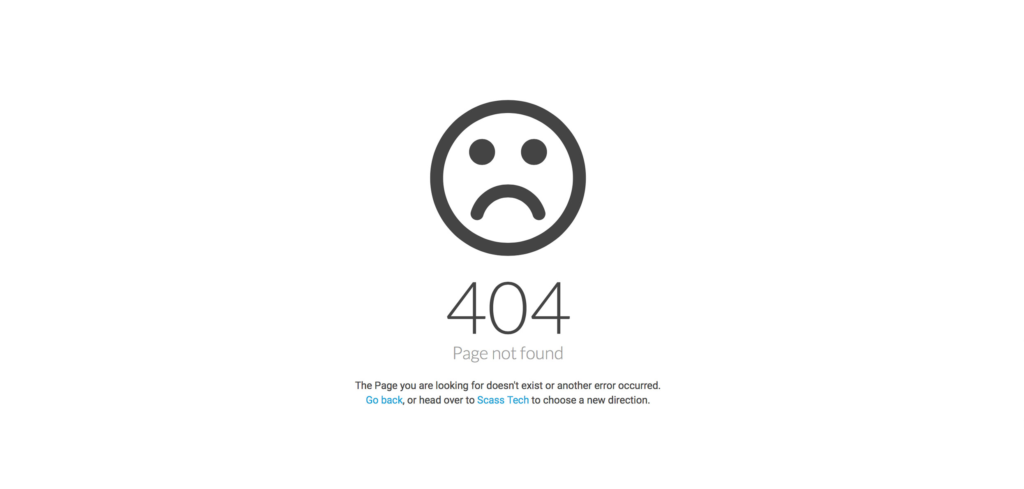
The Landing Page Doesn’t Match Your Ad
Any great marketing campaign aims to convince your audience to do something. You need your customers to see your ads and decide they want to buy from you. However, that doesn’t mean that you should be tricking your customers into doing anything.
Ad promotions that don’t match their landing page are clickbait. They violate Facebook’s advertising policies by being deceptive. For instance, imagine how you’d feel if you clicked on this ad about customer stories, and found a purchase page instead:
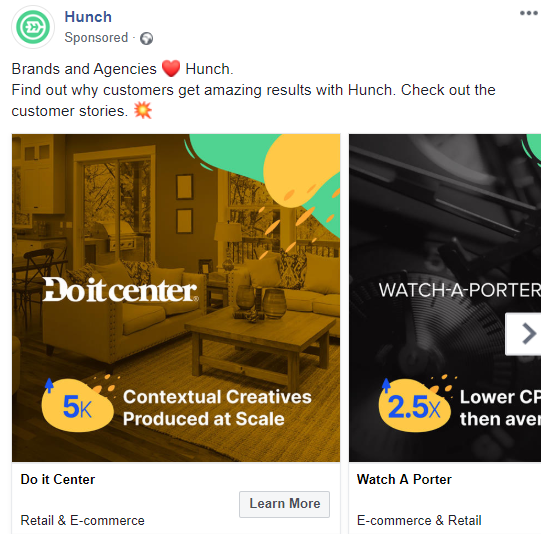
Make sure any landing pages you create connect directly to the ads you’re posting. Don’t try to trick your audience.
Inappropriate Content
You know your ad copy needs to be relevant to the landing page you’re promoting. However, it’s also essential to ensure that you’re not promoting something inappropriate for Facebook.
Remember, Facebook is a family-friendly platform. Ads can’t contain any sexual information, profanity, or discrimination. Make sure that any ad you produce is completely friendly for all ages.
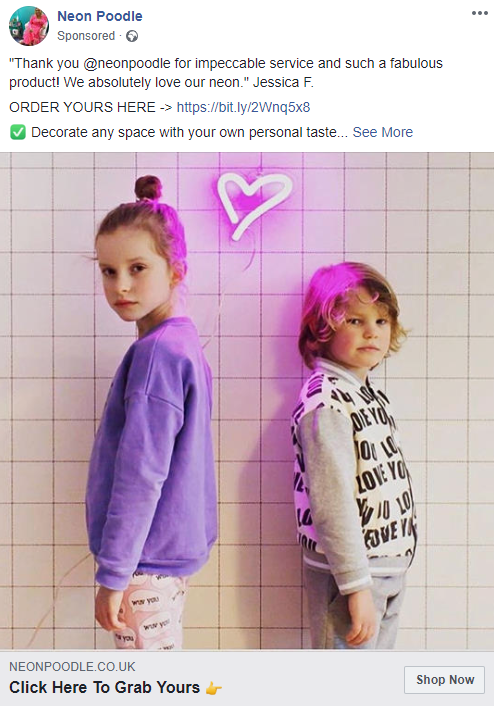
If you’re not sure what’s restricted or prohibited on Facebook, check out the policies page. You can use the prohibited content list as a checklist when you’re deciding what to include in your ad. For instance, you can’t:
- Promote adult content or products
- Promote drugs or prescription products
- Promote alcohol (unless you’re targeting the right age)
- Support gambling (unless approved by Facebook)
Other topics you’ll need to be careful about include Tobacco and drugs, dangerous dietary supplements, weapons, explosives, or ammunition, and sensational content. If your business is selling something that falls into Facebook’s prohibited content section, you may need to advertise elsewhere.
Content That Goes Against the Community Standards
The prohibited and restricted content rules on Facebook highlight everything that you absolutely cannot talk about in your ads unless you have the right permissions. There’s a vast selection of different rules to be aware of. For instance, you can’t even post ads about dating unless you have prior written permission from Facebook.
However, there are also some “community standards” to be aware of too. These community standards highlight things that might make people on Facebook feel less safe and secure online.
For instance, you aren’t permitted to use any hate speech or bullying in your content will for certain get your The easiest way to get your Facebook ads disapproved.
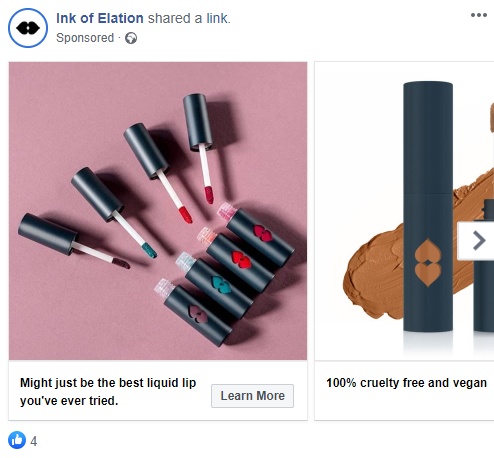
If the ad above told people to buy makeup because they looked ugly without it – it wouldn’t be approved. You also can’t post anything that includes violence or graphic content.
Remember, Facebook and Instagram have slightly different community standards – ensure that you’re aware of both lists before you start posting.
Your Content is Badly Phrased
Creating the right kind of content for Facebook ads means understanding your audience and your language. In some situations, using fear can be an excellent way to promote sales. For instance, a lot of companies use “fear of missing out” to their advantage.
However, fear isn’t a good strategy for your Facebook ads. That’s because Facebook wants the platform to be full of actual content.
For instance, if you were promoting a product for mobile advertising, you could ask your customers what they know about mobile marketing, and whether they might be badly informed.
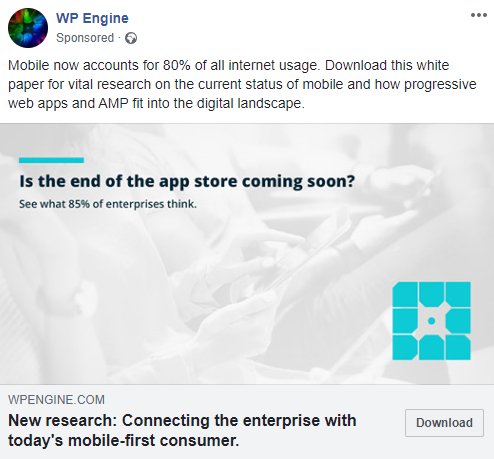
However, you couldn’t tell your audience that they’re going to lose all their customers if they don’t buy your product or download your eBook.
Mistakes and Typos
It’s not just how you phrase your content that makes a difference to your approval ratings, either. Errors and typos can also make it harder for your ads to get approved. Just as you need to check that your links work, you also need to ensure that your sentences flow properly.
If you wrote your ad copy yourself, speak to a proofreader to get it double-checked. Try to make sure that your text is concise, compelling, and accurate.
Proofreading your content is always a good idea because it means that you can ensure that you’re sending the right, professional messages to your audience. Imagine how uncomfortable an audience would be buying from the following company if their ad was riddled with mistakes:
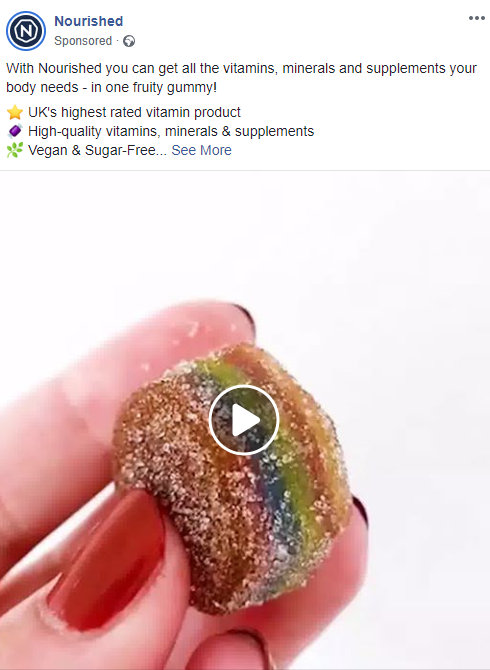
Double-check your spelling and be extra careful about any slang or poor grammar. Facebook might see playful “informal” language as a typo.
Low-Quality Images and Videos
A low-quality written copy is a serious problem for businesses creating Facebook ads. However, poor quality images and videos can be just as bad. While Facebook does give companies some leeway to create videos that look authentic and natural, you’ll need to stick to a high standard if you want to be approved.
Remember, Facebook has a standard to maintain for only promoting high-quality content. If you’re submitting blurry videos and images to share with your audience, your customers are not going to see you as a professional brand.
Imagine how it would look if this ad was blurry and unfocused:
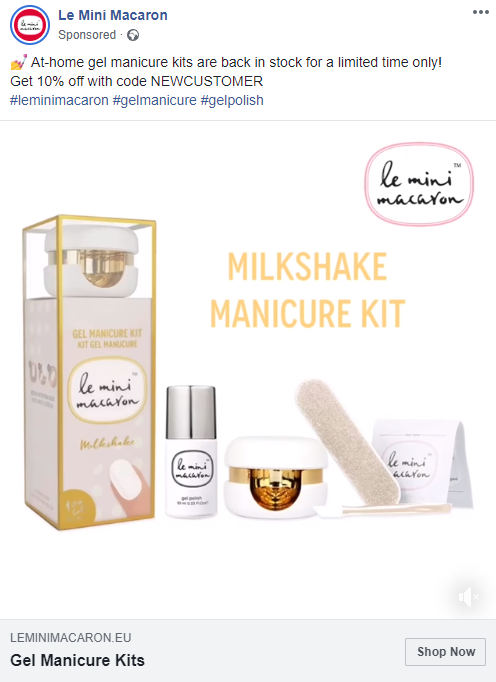
https://www.facebook.com/watch/?v=296422271551996
Use the highest possible resolution for all of your images and videos.
Encouraging Unethical Behavior
Some companies think that sensational and risky ads are the best way to get more attention online.
People take notice when companies go against the grain and make bold statements. However, it’s important to make sure that you’re using strategies like that correctly. You can’t encourage unethical or negative behavior, like excessive gambling or drinking, just to get attention. That’s the easiest way to get your Facebook ads disapproved and potentially your account banned.
Make sure that you double-check Facebook’s ad policies to figure out whether the thing you are promoting might be deemed “unsafe.” This could include having pictures of people smoking cigarettes in your ad copy, or people drinking.
Don’t think that just because you’re not actively selling a prohibited item, you won’t get into trouble with Facebook.
The 20% Text-Image Rule
If you’re already familiar with Facebook advertising, you may know about the 20% image text rule. This was a requirement from Facebook in the past that asked companies to add no more than 20% text to their images.
The rule isn’t necessarily gone now, but it is relaxed. You won’t always be rejected if there’s a lot of text in your image, but it’s important to follow Facebook’s best practices carefully. Facebook allows for more text within an image, but you’ll be penalized during the ad auction.
Instead of rejecting 20%+ ads completely, Facebook now provides a 4-tiered rating system. You can check out the guidelines with the Facebook Text overlay tool here.
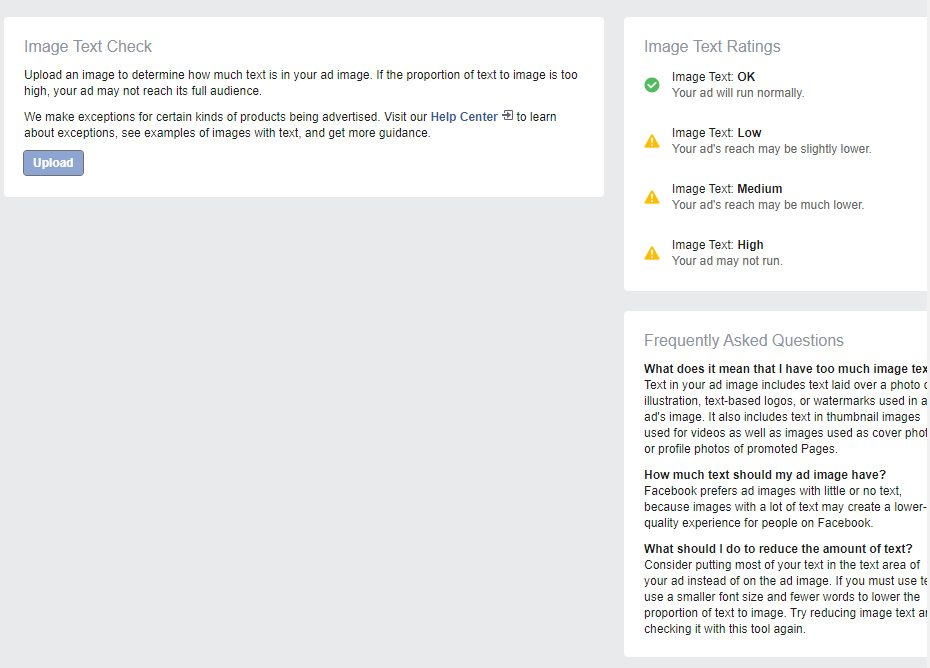
Privacy Issues
Ever since the Cambridge Analytica scandal, Facebook users have been extra nervous about revealing information online. While it’s important to leverage Facebook’s powerful targeting solution to reach the right audience, you can’t directly refer to the personal attributes that your audience has.
For instance, you can use your Facebook campaigns to target marketing experts who want to improve their native advertising strategy online. However, you can’t use highly personalized copy like “digital marketing groups for small businesses, like you!”
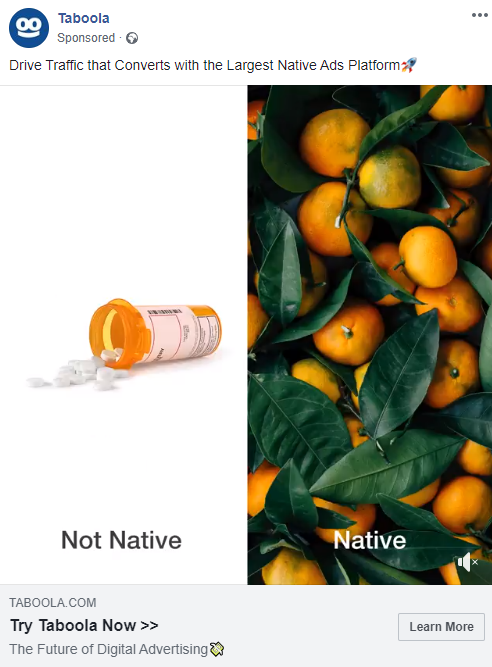
The trick is to figure out how to show your customers that you understand them, without being too creepy. Highlight the problem your audience has and show them how you can make it better with your chosen solution.
Third-Party Infringement
With so many different factors to think about as you create your Facebook ads, it’s easy to make mistakes from time to time. Some companies accidentally infringe on another person’s copyright or trademark with their content.
For instance, if your ad contains a copyrighted photo, then you might need to change that image before you can launch your campaign. To reduce your risk of having any infringement issues, use all of your original images and content for your ads.
For instance, you can add pictures of your own products and team to your ad, rather than taking a picture from the web.
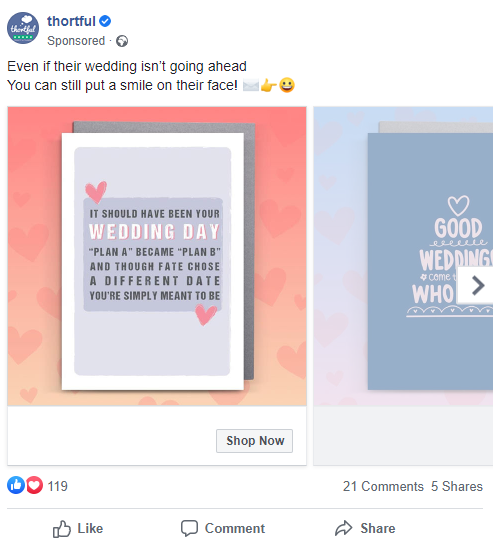
You’re Spreading False Information
“Fake News” is a big issue in today’s social world.
People are sick of seeing lies on their social media feed – particularly when those lies lead to arguments. Because of that, it’s important to ensure that all of your posts are as accurate as possible.
None of the ads you promote on Facebook can contain any information that might be false or inaccurate. If you repeatedly post false information online, you might even have to deal with restrictions on your advertising account.
If you’re spreading health information, following the rules is particularly important.
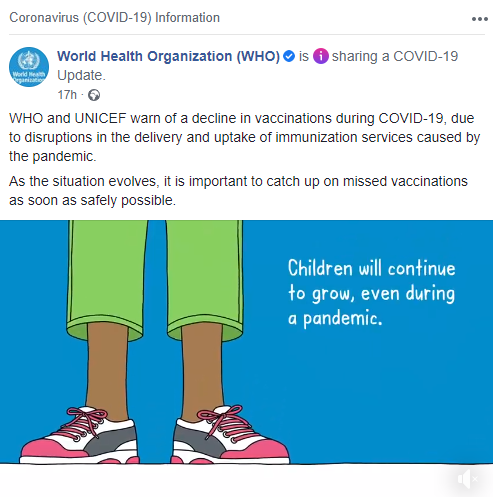
https://www.facebook.com/watch/?v=277771543314350
Spreading false information also includes using sensationalized before and after pictures. Do not edit your content to make your “after” images look more amazing.
You Don’t Have the Right Approval
Above, we mentioned that Facebook has a variety of prohibited and restricted topics that you need to be wary of when promoting online.
Some of those topics come with caveats. For instance, you can promote alcohol and gambling services, as long as you include the correct disclaimers on your ads, and make sure that you have written permission before you get started.
Facebook has specific quality guidelines in place for compliant dating apps for a range of prohibited content types, including everything from dating to adult content.
Make sure that you’re checking all of the right boxes before you try to promote anything.
Your Videos Are Disruptive
Using visual media on your Facebook ad is a great way to capture more audience attention. However, you mustn’t be using ads that might be seen as overly disruptive as that’s a sure fire way to get your Facebook ads disapproved.
Flashing screens and other tools designed to capture audience attention is annoying. Facebook doesn’t want its customers to have to deal with that when they’re scrolling through their feed. You might even find that your ad won’t be approved if you have a video that starts playing automatically.
Soundless videos that play automatically may be acceptable, but it’s important to ensure that nothing you post is designed to shock your audience.
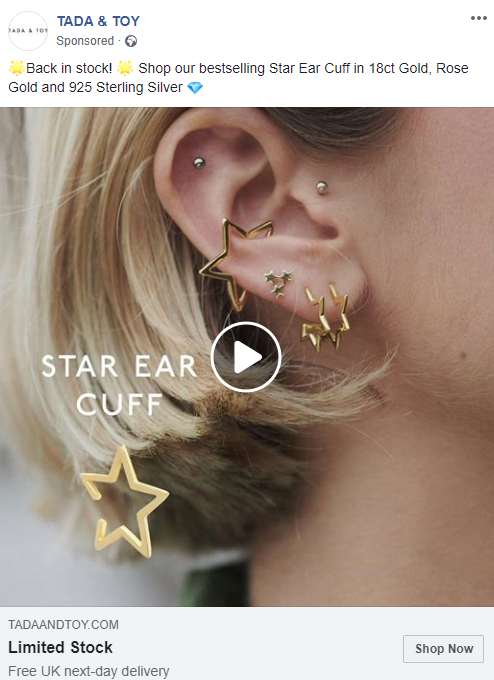
You’re Asking for Too Much
Finally, one of the biggest issues that companies have with lead-generation Facebook ads, is that they’re asking too much information from their audience. You can’t just request account numbers, loyalty card numbers, and other private details on Facebook.
You also can’t ask for specific information from your target audience in your lead ads about things like their criminal history or employment.
Sending your audience to a landing page where you request an email address and name is fine, but don’t go over the top with whatever you’re asking for.
Make Sure Your Ads Are Approved
Ultimately, there are a lot of reasons why Facebook ads are disapproved.
The good news is that Facebook does understand that people might make mistakes at times. That’s why you’ll have the option to edit your ad and appeal Facebook’s decision if you are disapproved.
Before you make your edits, make sure that you read through the terms and conditions of Facebook’s advertising platform. You should also double-read the email that your advertising account received when you were disapproved. This will give you some crucial instructions to follow.
If you decide to go through with an appeal, then there are special forms that you will need to fill out. The Facebook appeal form will ask Facebook to review your ad against considering the possibility that they might have disapproved of you for the wrong reasons.
Good Luck with Your Ads
Facebook’s advertising requirements often seem strict and are easy to get your Facebook ads disapproved
However, with a little prior planning and care, you can usually make sure that you’ve set yourself up for success. Avoid the fifteen issues that we’ve mentioned above and take a closer look at the requirements Facebook has in place before you start posting.
You’ll be on your way to a successful ad campaign in no time.

